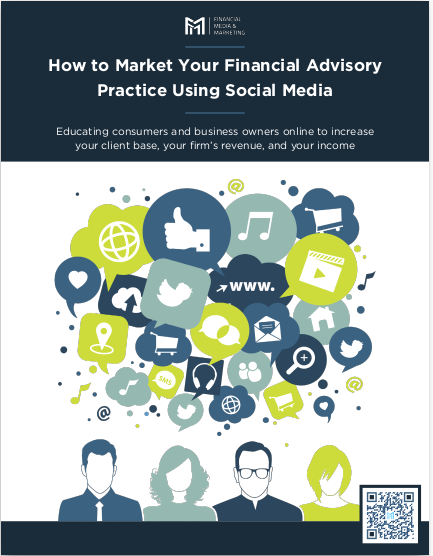Key Takeaways
- Effective marketing tactics are essential for financial advisors to expand their client base and grow their practice.
- Leveraging social media, hosting educational events, developing a strong online presence, and utilizing email marketing, referral programs, and thought leadership content can significantly enhance client acquisition efforts.
Top Marketing Tactics Financial Advisors Need to Know for Client Expansion
In the competitive world of financial advising, effective marketing is crucial for expanding your client base and achieving business growth. Financial advisors need to employ a variety of marketing tactics to attract and retain clients. This article explores top marketing strategies that financial advisors can use to enhance their outreach and grow their clientele.
Leveraging Social Media for Client Outreach
Social media platforms are powerful tools for financial advisors to reach a broader audience, engage with potential clients, and build their brand. Here’s how to leverage social media effectively:
Choose the Right Platforms
Focus on the social media platforms where your target audience is most active. LinkedIn, Facebook, and Twitter are particularly effective for financial advisors:
- LinkedIn: Ideal for professional networking, sharing industry insights, and connecting with potential clients.
- Facebook: Great for building a community, sharing updates, and engaging with followers through posts and comments.
- Twitter: Useful for sharing quick tips, industry news, and engaging in real-time conversations.
Share Valuable Content
Consistently post content that provides value to your audience. This can include:
- Market Updates: Share insights on market trends and how they might affect investments.
- Financial Tips: Offer practical advice on budgeting, saving, and investing.
- Educational Articles: Post links to articles and blog posts that explain complex financial concepts in simple terms.
Engage with Your Audience
Actively engage with your followers by responding to comments, participating in discussions, and acknowledging mentions. Building relationships through social media can enhance your credibility and attract new clients.
Hosting Educational Seminars and Webinars
Educational seminars and webinars are excellent ways to demonstrate your expertise and connect with potential clients. They provide an opportunity to share valuable information and build trust.
Plan Relevant Topics
Choose topics that are relevant to your target audience and address common financial concerns. Examples include:
- Retirement Planning: Strategies for saving and investing for retirement.
- Tax Optimization: Tips for reducing tax liabilities.
- Investment Strategies: Guidance on building and managing an investment portfolio.
Promote Your Events
Promote your seminars and webinars through various channels:
- Social Media: Share event details and registration links on your social media profiles.
- Email Marketing: Send invitations to your email list with a compelling call to action.
- Local Advertising: Use local newspapers, community bulletin boards, and online event listings to reach a wider audience.
Engage During and After the Event
During the event, encourage interaction by answering questions and facilitating discussions. After the event, follow up with attendees to provide additional resources and schedule consultations.
Developing a Strong Online Presence
A robust online presence is essential for attracting and converting potential clients. Your website and online profiles should reflect your professionalism and expertise.
Optimize Your Website
Your website is often the first impression potential clients will have of your business. Ensure it is:
- User-Friendly: Easy to navigate with a clear layout and intuitive design.
- Mobile-Optimized: Accessible on all devices, including smartphones and tablets.
- Informative: Provide detailed information about your services, team, and contact details.
Implement SEO Strategies
Search Engine Optimization (SEO) helps your website rank higher in search engine results, making it easier for potential clients to find you. Key SEO strategies include:
- Keyword Optimization: Use relevant keywords throughout your website content.
- Quality Content: Regularly update your site with high-quality, informative content.
- Backlinks: Obtain backlinks from reputable sites to enhance your site’s credibility.
Maintain Active Online Profiles
Ensure your profiles on LinkedIn, Google My Business, and other relevant platforms are complete and up-to-date. Regularly post updates and engage with your audience to keep your profiles active.
Implementing Email Marketing Campaigns
Email marketing is a highly effective way to nurture leads and keep your clients informed. By sending targeted, relevant content, you can build strong relationships and encourage client engagement.
Build a Quality Email List
Grow your email list by offering value in exchange for contact information:
- Lead Magnets: Offer free resources such as eBooks, guides, or financial checklists.
- Newsletter Sign-Up: Encourage website visitors to subscribe to your newsletter for regular updates and tips.
Segment Your Audience
Segment your email list based on factors such as demographics, interests, and behavior. This allows you to send personalized content that resonates with each segment.
Craft Compelling Emails
Create emails that provide value and encourage action:
- Informative Content: Share articles, tips, and updates relevant to your audience.
- Personalized Messages: Address recipients by name and tailor content to their interests.
- Clear Call to Action: Include a clear and compelling call to action, such as scheduling a consultation or downloading a resource.
Utilizing Referral Programs and Partnerships
Referrals and partnerships can significantly expand your client base by leveraging the networks of others. Building a strong referral program and forming strategic partnerships can lead to steady client growth.
Develop a Referral Program
Encourage your existing clients to refer friends and family by offering incentives:
- Rewards: Offer rewards such as discounts, gift cards, or free services for successful referrals.
- Easy Process: Make the referral process simple and straightforward for your clients.
Form Strategic Partnerships
Partner with other professionals and organizations that serve a similar client base:
- Accountants and Attorneys: Collaborate with accountants and attorneys who can refer clients in need of financial planning services.
- Local Businesses: Partner with local businesses to host joint events or offer mutual referrals.
Creating Engaging Content and Thought Leadership
Positioning yourself as a thought leader in the financial industry can attract potential clients and build trust. Creating and sharing engaging content is a key part of this strategy.
Write Blog Posts and Articles
Regularly publish blog posts and articles on your website and other platforms. Focus on topics that showcase your expertise and provide value to your audience.
Contribute to Industry Publications
Write guest articles for reputable financial publications and websites. This can increase your visibility and establish you as an authority in the field.
Host Podcasts and Videos
Create podcasts or video content on financial topics. These formats allow you to reach a broader audience and engage with clients in a more personal way.
Conclusion
Expanding your client base as a financial advisor requires a multifaceted marketing approach. By leveraging social media, hosting educational events, developing a strong online presence, and implementing effective email marketing campaigns, you can attract and retain clients. Additionally, utilizing referral programs and partnerships, and creating engaging content can further enhance your outreach efforts. By employing these top marketing tactics, financial advisors can achieve significant client growth and establish themselves as trusted experts in the industry.










